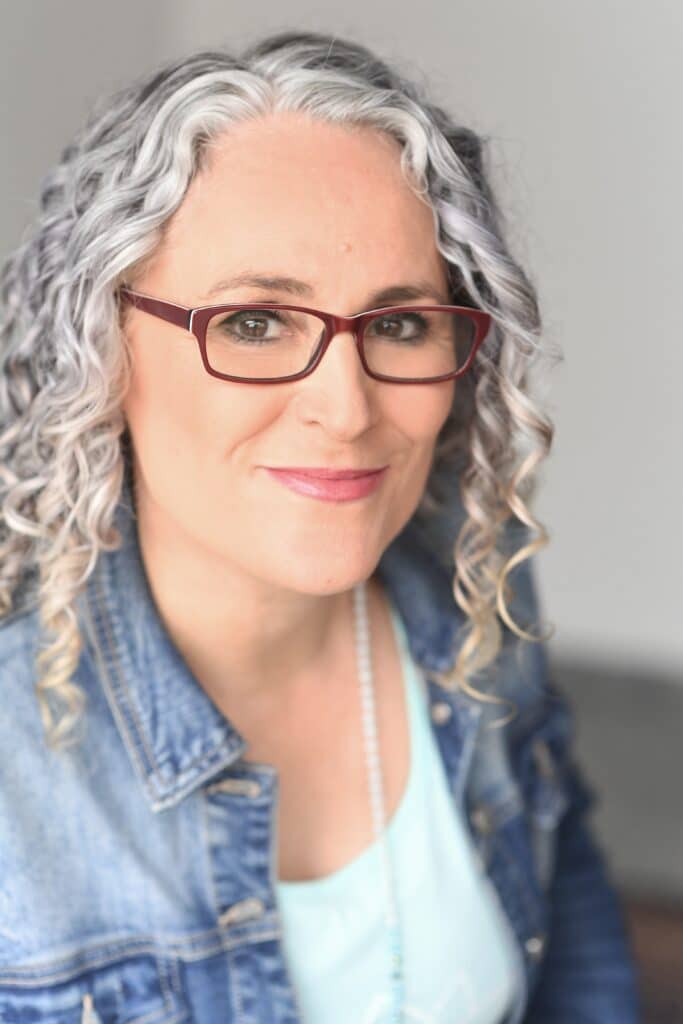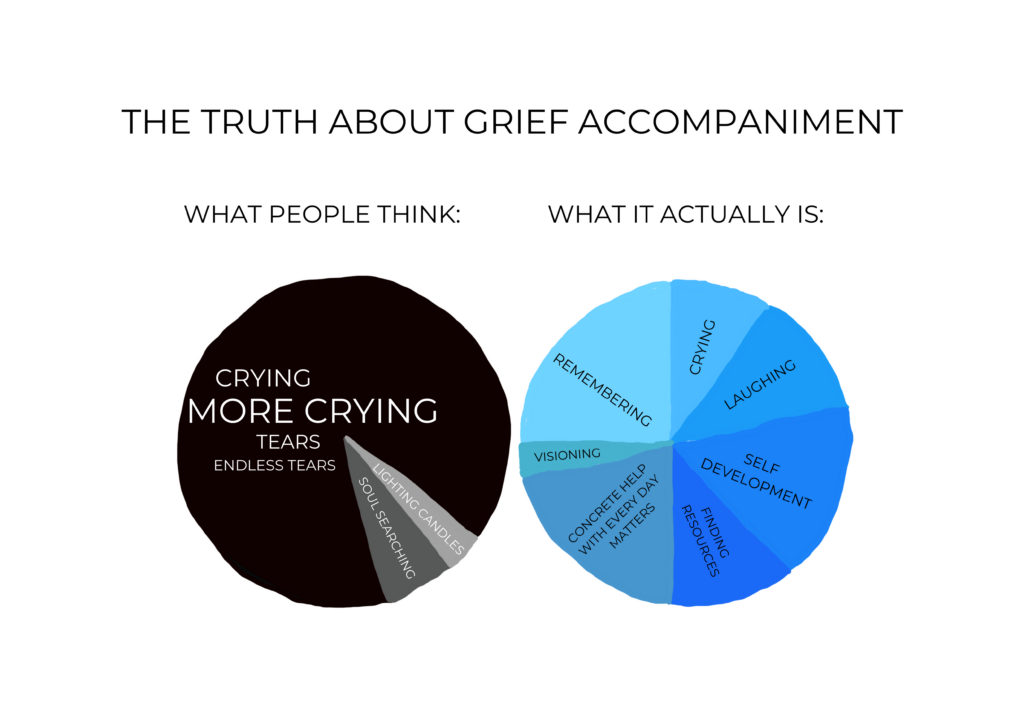
I work with individuals and couples, those who would prefer more personal support in dealing with grief, loss, trauma, or relationship challenges. I specialize in the following areas:
- Mourning Accompaniment: Grief & loss – any kind of loss of a loved one, especially for parental bereavement and family survivors of suicide victims, but also in cases of loss of health, job, life satisfaction
- Grief & Trauma: Trauma is often part of the loss. Through tools such as Somatic Experiencing (SE) and NeuroAffective Relational Model™ (NARM), the system (physical, mental, and emotional body) is given time and space to integrate the experience.
I can also assist with:
- Developmental & Shock Trauma: Many issues in life are related to trauma we have experienced throughout life. Somatic Experiencing (SE) and NeuroAffective Relational Model™ (NARM) are effectively used to deal with them.
- Relationship Satisfaction: Often challenged following the death of a family member, relationships need to be re-evaluated.
Questions I receive
When is the right time to get professional support?
This is a very common question grievers ask themselves. There is no right or wrong time to get help, neither is there too soon or too late when it comes to getting help. Given that you are reading this means that you have recognized the need for help and that you are ready to find out who could support you best. Schedule your initial first meeting with Nathalie above.
I’ve been told to come back after x month and that they cannot help me now, why is that?
If you are in early, raw grief it requires that the person or place offers early grief support. Not all places (charities, support centres, etc.) or people (for example grief coaches) are trained, equipped, or feel prepared enough to be there with and for someone in those early stages.
I am. I am professionally trained to support someone like you and also have experience in doing so. I am however not able to support you if you feel that ‘nothing can help me anyway’.
How do I know if you are the right therapist for me?
Or, as a matter of fact, any other therapist is right for me?
By giving it a try. Book a 30-minute initial meeting with me or ask any other therapist whether they offer that. This will give you a taste, just like with any restaurant that go to for the first time. If you like it so far, we will schedule a session and go from there.
Initial 30-minute Meeting with Nathalie
Set up your initial first meeting time here:
Mourning accompaniment
Even though there isn’t a suitable term in English, the German term Trauerbegleitung best translates to mourning accompaniment. It describes the process of accompanying someone through their grief, walking side-by-side through this painful process.
Many traditional grief theories still aim at ‘getting back to normal’ and ‘letting go’ of the deceased. Sadly, these grief theories are based on the myths that still exist in people’s minds: you shouldn’t feel bad (for too long), grieve alone, stay strong for others, keep busy, and time will do the healing.
Grief requires time, words, closeness, and support. Mourning accompaniment provides a safe space for the bereaved to retract, to let themselves be carried and supported. Within this space, inner strength will grow to find and create a new purpose in life.
- Time: Once you decide to do grief work, you learn to give yourself time. Even while your friends and family members have returned to ‘daily life’, you might still require months or years to deal with your emotions.
- Words: In grief accompaniment, we search for words to express the pain. Rituals, images, creativity – and our conversation about those can help find ways to express and deal with the emotions.
- Closeness & support: Closeness to others who have experienced similar situations, whether that is in a one-on-one or group situation can significantly alleviate the sense of being alone. Where friends and family members might fail to provide the understanding needed, grief accompaniment will.

Trauma and grief
Those who do not realize their trauma are forced to repeat or re-enact it.
Pierre Janet, 1907
Today we would say that someone who is not able to realize (allowing it to become real) and integrate their trauma is forced to re-live it in the inner and outer world or it happens to re-enact in their surroundings. The more a person has dealt with their trauma, the more they can release it.
Traumatic grief is when trauma reactions accompany loss when…
- the loss happens unexpectedly, suddenly, or violently
- the loss happens out of timely order, for example, for parents, who lose a child
- the loss occurs to a large population, for example, in terror attacks, plane crashes, during the war, genocide, etc.
Such a loss triggers post-trauma survival mechanisms in addition to mourning of whatever was lost.
People with trauma disorders can often hardly distinguish between the past and the present. The traumatic event was so imprinted on the soul (anatomically, in the brain) that it had to be split off. When triggered, it feels like the event is real in the present. It is not integrated into the whole organism and leads a life of its own, it only comes out like a flashback. Such people usually have disorganized attachments and are suspicious of everything and everyone.
My work with you
In my work with clients, I follow a different approach: Helping you navigate your life after the loss by dealing with the pain of the loss and, at the same time creating an inner relationship with the person who is no longer alive.
This is done using a systemic approach: A systemic view doesn’t just take into account the individual bereaved person but the social support system surrounding him or her.
We will work process-oriented: We emphasize or focus on processes, systems, or procedures rather than results.
Grief work is creative relationship work with the ultimate aim of
Initial 30-min Meeting with Nathalie
Set up your initial first meeting time here:
The aim of grief work
- Accepting grief and pain: Instead of trying/pretending to be ok or strong, accept what is, both within yourself, as well as in response to others. Moving from being at grief’s mercy towards actively dealing with grief.
- Relationship with the intense emotions: Working towards seeing the emotions as helpful allies and necessary parts of the healing process.
- Death and finding a way to relate to the no longer physically present person: Coming to acceptance of the reality of death and finding ways to live a healthy ongoing emotional relationship with the dead person, one that supports integration into life.
How I will work

My background is broad, including different approaches, therapeutical styles, and techniques. I use whatever is most helpful to the situation and the client, keeping a holistic, integrative perspective.
The best way to find out if we can work together and if my style fits your needs is by setting up a time for a free first discovery session. Request your session by sending me an email, describing your situation.
Online session
I work with you for 60 or 90 minutes, either via Zoom or FaceTime. If you’re unsure about online sessions, feel free to schedule a free first discovery session and give it a try. Request your session by sending me an email, describing your situation. Read more about the benefits and challenges of online sessions here.
Face-to-face session
For those who are located in the vicinity of Zurich, Switzerland, and prefer a personal meeting, I meet you in a public place of our mutual agreement. For sessions away from my home office, a ‘travel fee’ will be charged per session depending on location. There are limited times available for face-to-face sessions in a therapy space in Erlenbach, Zurich.
Benefits of a therapeutic walking session
We mostly will go for a therapeutic walking session. Neuroscience has shown that the lateralized eye movements which are automatically present in the optic flow, for example, while walking, are naturally calming the activity of the amygdala, the limbic system in the brain, that is responsible for threat detection and stress.
What People Say

Thank you so much for the wonderful book ‘May We All Heal: Playbook for Creative Healing After Loss’. I am so grateful for the work you do and the messages you send out for bereaved parents. I have recently gained a lot of strength within my grief and this is very much down to finding yourself and the creative bereaved community on Instagram. Sending you much love and heartfelt gratitude.
– Jo, San Diego
